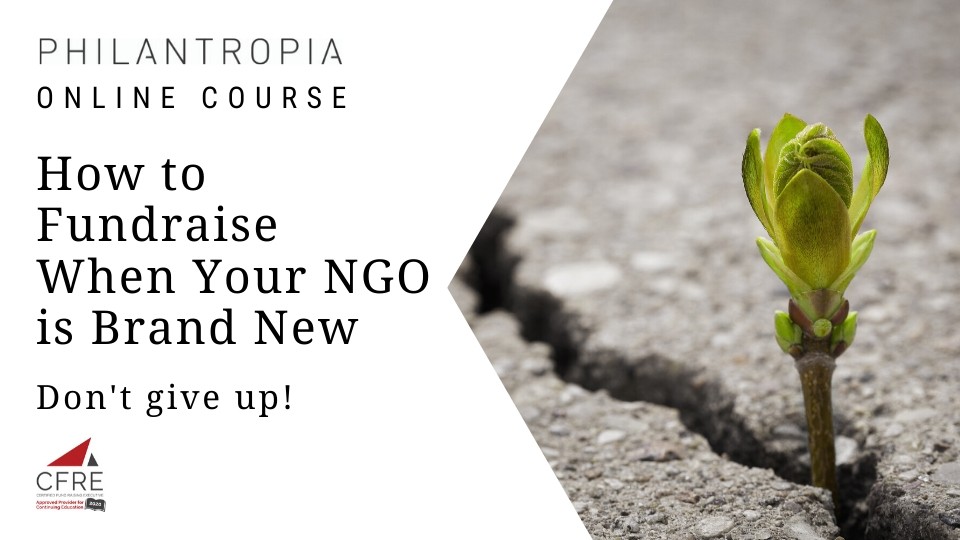Most NGOs around the world do not have a written gift acceptance policy. A gift (or grant) acceptance policy is a formal set of guidelines that determines under which conditions an NGO should decline a gift or donation. Some NGOs may have never considered drafting such a policy, or feel that it is unnecessary. Perhaps they believe that their organization operates with integrity, and that gift acceptance policies are only necessary for larger or more complex NGOs. Others may not have the necessary resources to develop and implement a policy, or they may not be aware of the potential benefits that such a policy can bring. However, regardless of an NGO’s size or complexity, having a gift acceptance policy can provide numerous advantages and help mitigate risks associated with accepting donations.
What is a gift acceptance policy? Why do NGOs need one? How do you draft one? This article provides answers to these questions. By the end of this article, readers will have a clear understanding of gift acceptance policies and their importance for NGOs, as well as the knowledge and tools necessary to create their own policy.
What is a gift acceptance policy?
A gift acceptance policy is a written formal set of guidelines that guide NGOs in several ways:
- It broadly defines the types of gifts/donations that the NGO can accept
- It clarifies the forms of gifts/donations that can take
- It assigns responsibilities to various persons in the NGO
- It outlines how gift acceptance procedures are administered
- It clarifies when gifts are to be reviewed
Why do we need a gift acceptance policy?
Having proper, formal policies and procedures in place is an important prerequisite for NGOs to function at their highest capacity and ensure smooth operations. A well-crafted policy can help NGOs avoid conflicts of interest, prevent any perceived or actual favoritism towards specific donors, and ensure that all donations are consistent with their organizational values and goals. Moreover, having a gift acceptance policy can help build transparency and accountability, as it provides a framework for decision-making regarding donations and helps to avoid any potential legal or ethical issues. There will always be a first time when accepting a gift or donation causes severe organizational or reputational problems, even though most gifts and donations are not contentious in character and won’t cause problems.
In order for NGOs to operate efficiently and to the best of their ability, clear, established policies and procedures must be in place.

For example:
- The gift hurts the NGOs reputation
- The gift is inappropriate
- The donor does not share the mission of the NGO
- The donor has an agenda other than helping the NGO
- The gift is very difficult to administer
- The gift creates risks for beneficiaries and/or staff
- Management has not approved the acceptance of the gift
- Staff do not approve of the donor
A written policy means that the NGO is making good faith, disciplined attempts to prevent high-risk or inappropriate gifts from being accepted.
A gift acceptance policy will typically be quite broad and not too prescriptive. While in some cases it is possible to define gifts that cannot be accepted under any circumstance (e.g. donations from donors connected to the arms trade, alcohol/cigarette manufacturing, a government that does not respect human rights, etc.) – in most cases specific restrictions are difficult to list and not recommended. With thousands of potential donors around the world, this would be a logistical nightmare.
How do we develop a gift acceptance policy?
Gather examples
The first step is to gather examples of gift acceptance policies from other NGOs. There is a range of such policies sample available on the web, from the very simple to extremely complex. You can get a sense of what you would like to include in your policy by researching. It is important to review policies from NGOs that have a similar mission and values to your organization to ensure that your policy is relevant and effective. Once you have gathered several examples, you can begin drafting your policy, keeping in mind the unique needs and circumstances of your organization. By using existing policies as a starting point, you can save time and effort while creating a strong, effective gift acceptance policy that supports your organization’s goals and values.
Who should be involved?
Once you have drafted a policy it would be a good idea to convene a meeting with relevant staff (board members, management, and program officers) to review the draft document and solicit comments and feedback. During the meeting, it is important to encourage open and honest discussion and address any concerns or questions that arise. You may need to make revisions to the policy based on the feedback received to ensure that it is comprehensive and relevant to the organization’s needs. You want to make sure all staff are on board with the policy and understand its implications.
How to implement the policy?
Once finalized and approved, make sure all staff receives a copy of the policy and understands its implications, and their specific responsibilities. While the development and review of the policy may have involved a range of staff, it is essential that every member of the organization has a clear understanding of the policy’s content and how it applies to their role. One way to achieve this is by providing training sessions or workshops that focus on the policy’s key elements and provide staff with practical guidance on its implementation.
A gift acceptance policy may be rapidly forgotten as it is unlikely to be employed except in rare circumstances. In order to ensure compliance with the policy, try to schedule a review of the gifts/donations accepted that year at least once a year. By revisiting the policy on a regular basis, the organization can ensure that it remains consistent with the latest best practices and ethical standards and that it continues to reflect the organization’s mission, vision, and values. This will help test the effectiveness of both the policy and keep staff engaged in reviewing gift acceptance. If necessary, update the policy periodically. This can be an excellent opportunity to evaluate the policy’s effectiveness and identify any areas for improvement. It can also be an effective way to keep staff engaged in the review of gift acceptance and to reinforce the importance of adhering to the policy.
—
Did you just start an NGO and have a difficult time getting funded? Did you apply for grants but were not successful yet? We hear you! Join this online course to get an idea of what you have to do to be a successful fundraiser, even if your NGO cannot show a long record of successful cooperation.
Enroll in the course here.
First published on Proposalsforngos.


